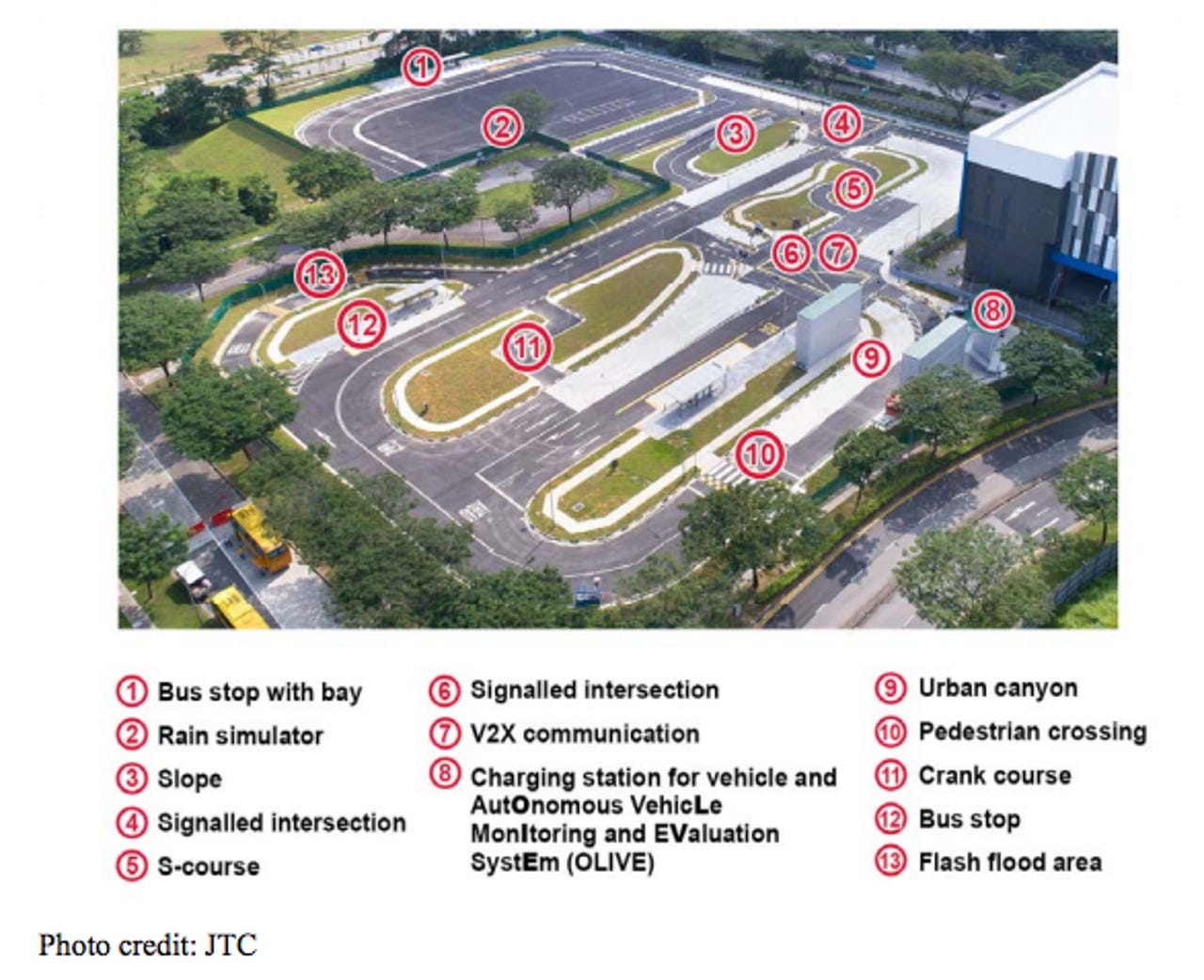Singapore aims to drive up standards for autonomous vehicles with test centre


A new test centre has opened up in Singapore to develop standards and ensure the safe deployment of autonomous vehicles on public roads.
Spanning two hectares in Jurong Innovation District, the test site was jointly developed by the country's Land Transport Authority (LTA), Nanyang Technological University of Singapore (NTU), and JTC. It also would support the Centre of Excellence for Testing & Research of AVs - NTU (CETRAN), which was launched in August last year.
Latest news on Asia
In a joint statement, the organisations noted the lack of international test standards or international certification bodies for autonomous vehicles (AVs). The new test site as well as efforts led by CETRAN would establish Singapore's role in driving the testing and deployment of such vehicles.
"For safe and seamless integration onto public roads, AVs need to be tested on their communication and interaction with other vehicles, road infrastructure. and elements as well as dispatch and routing systems," they said.
The test site would be able to replicate different elements of local roads, with common traffic schemes, road infrastructures, and traffic rules. These were necessary to test navigation controls in AVs. The facility also included a rain simulator and flood zone to test the vehicles' navigation abilities under different weather conditions.
Amongst others, the circuit included "crank course and s-course" to test the vehicles' ability to manoeuvre sharp curves without striking or mounting the kerb, as well as bus stops to assess their ability to enter and exit bus bays amidst traffic flow.
A network of seven 360-degrees CCTV cameras had been installed at various locations across the test centre to monitor the progress of the tests. Real-time footage from these cameras then would be streamed to a monitoring and evaluation system, located at LTA's intelligent transport systems centre, and used to assessed the readiness of AVs for public use.
LTA Chief Innovation and Technology Officer Lam Wee Shan said: "The test centre has been outfitted with equipment and infrastructure that can be configured to simulate various traffic scenarios for AV testing in a dense urban setting. This is an important enabler as we continue to explore ways to leverage the latest AV technology for our land transport system, be it in the form of mass public transport or shared transport options."
The LTA also announced plans to pilot the use of autonomous buses and on-demand shuttle vehicles to serve commuters in three districts--Punggol, Tengah, and Jurong Innovation District--from 2022.
These AVs would initially travel on less crowded roads, running alongside human-manned public buses, and on-demand shuttles could be hailed via mobile phones.
LTA said it also was looking to extend the use of autonomous buses for express transit links between the North-East Line to the North-South, East-West, and Thomson East Coast Lines.
To facilitate the deployment of the pilot, the Ministry of Transport and LTA were seeking a Request for Information (RFI) from the industry and research institutions on key requirements needed to drive the tests. Inputs were requested in various areas including concepts of operations, physical infrastructure requirements, and system requirements.
The pilot also would help build insights on how Singapore should deploy AVs in the city-state as well as develop new towns and refurbish existing ones to facilitate the mass deployment of AVs.